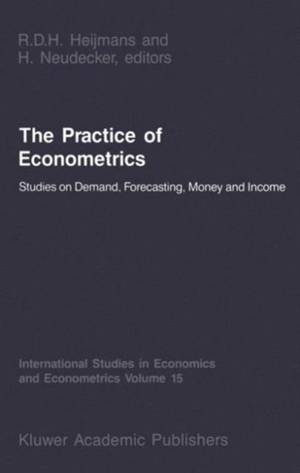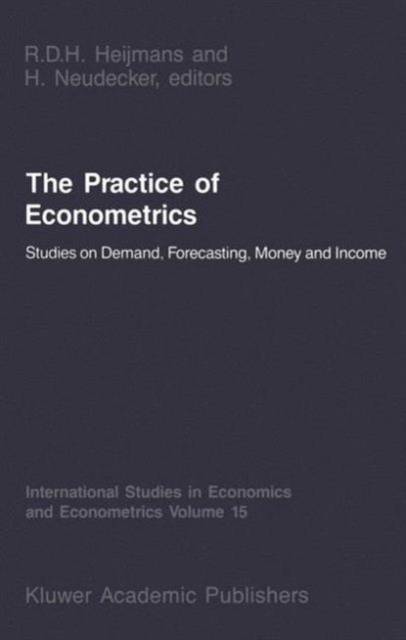
Bedankt voor het vertrouwen het afgelopen jaar! Om jou te bedanken bieden we GRATIS verzending (in België) aan op alles gedurende de hele maand januari.
- Afhalen na 1 uur in een winkel met voorraad
- In januari gratis thuislevering in België
- Ruim aanbod met 7 miljoen producten
Bedankt voor het vertrouwen het afgelopen jaar! Om jou te bedanken bieden we GRATIS verzending (in België) aan op alles gedurende de hele maand januari.
- Afhalen na 1 uur in een winkel met voorraad
- In januari gratis thuislevering in België
- Ruim aanbod met 7 miljoen producten
Zoeken
The Practice of Econometrics
Studies on Demand, Forecasting, Money and Income
€ 106,45
+ 212 punten
Omschrijving
In the autumn of 1961 Jan Salomon ('Mars') Cramer was appointed to the newly established chair of econometrics at the University of Amsterdam. This volume is published to commemorate this event. It is well-known how much econometrics has developed over the period under consideration, the 25 years that elapsed between 1961 and 1986. This is specifically true for the areas in which Cramer has been actively interested. We mention the theory and measurement of consumer behaviour; money and income; regression, correla- tion and forecasting. In the present volume this development will be high- lighted. Sixteen contributions have been sollicited from scholars all over the world who have belonged to the circle of academic friends of Cramer for a shorter or longer part of the period of 25 years. The contributions fall broadly speaking into the four areas mentioned above. Theory and measurement of consumer behaviour is represented by four papers, whereas a fifth paper deals with a related area. Richard Blundell and Costas Meghir devote a paper to the estimation of Engel curves. They apply a discrete choice model to British (individual) data from the Family Expenditure Survey 1981. Their aim is to assess the impact of individual characteristics such as income, demographic structure, location, wages and prices on commodity expenditure.
Specificaties
Betrokkenen
- Uitgeverij:
Inhoud
- Aantal bladzijden:
- 285
- Taal:
- Engels
- Reeks:
- Reeksnummer:
- nr. 15
Eigenschappen
- Productcode (EAN):
- 9789024735020
- Verschijningsdatum:
- 31/10/1987
- Uitvoering:
- Hardcover
- Formaat:
- Genaaid
- Gewicht:
- 629 g

Alleen bij Standaard Boekhandel
+ 212 punten op je klantenkaart van Standaard Boekhandel
Beoordelingen
We publiceren alleen reviews die voldoen aan de voorwaarden voor reviews. Bekijk onze voorwaarden voor reviews.








